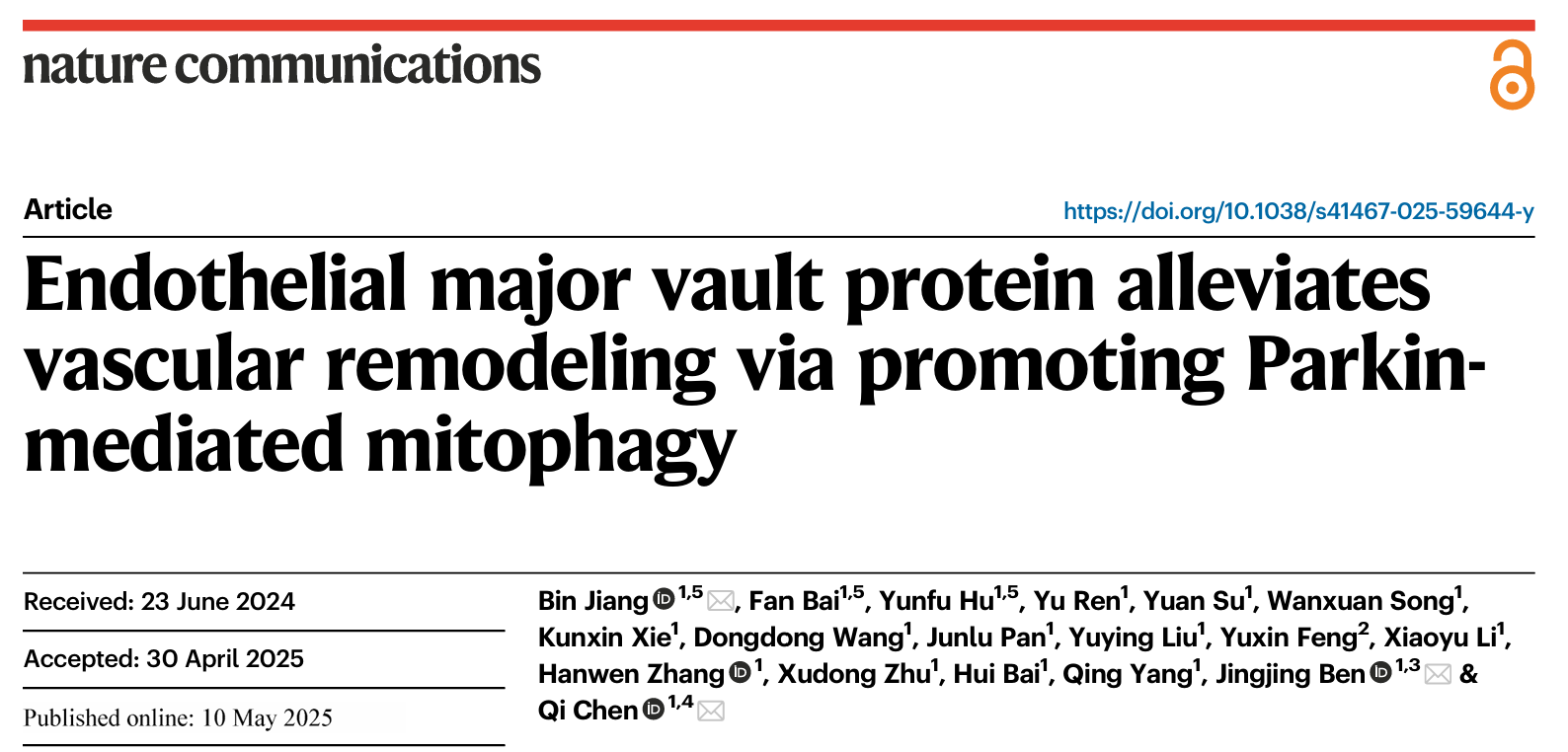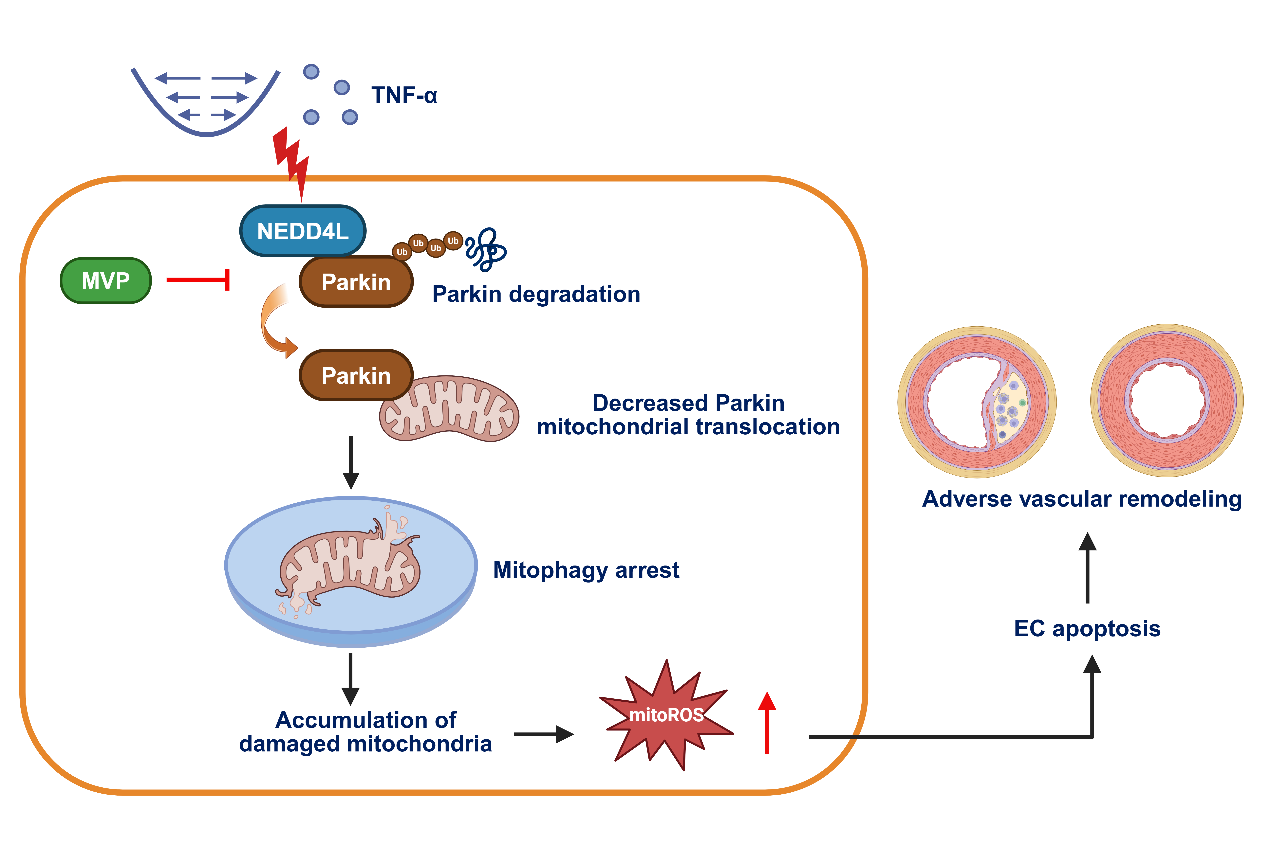A research team led by Professor Qi Chen from the School of Basic Medical Sciences at Nanjing Medical University has recently published a research paper in Nature Communications titled "Endothelial major vault protein alleviates vascular remodeling via promoting Parkin mediated mitophagy ". This study is the first to demonstrate that major vault protein (MVP) in endothelial cells facilitates Parkin-mediated mitophagy, thereby inhibiting endothelial apoptosis and alleviating vascular remodeling.These findings provide new insights into the critical role of endothelial cells in vascular remodeling and suggest MVP as a potential therapeutic target for vascular disease.

Pathological vascular remodeling is characterized by structural and functional alterations in the vessel wall during the process of multiple vascular diseases including neointimal hyperplasia, atherosclerosis, and pulmonary hypertension. Currently, the interventional strategies for both atherosclerosis and neointimal hyperplasia are confined to targeting cardiovascular disease risk factors and surgical modalities, highlighting the importance of deep insights into the mechanisms of pathological vascular remodeling.
Endothelial cell (EC) serves as the barrier to blood vessel wall enabling a controlled exchange of fluids, molecules, and cells. Endothelial cell injury and dysfunction, caused by oxidative stress, shear stress, inflammation and so on, are the initiating factors for neointima and atherosclerosis formation. Defective mitophagy in ECs accelerates the accumulation of dysfunctional mitochondria and triggers oxidative stress, leading to apoptosis. However, the detailed regulatory mechanisms of mitophagy are not fully understood.
Using murine models of vascular disease, the researchers found that loss of endothelial MVP exacerbated neointimal formation and atherosclerosis. Mechanistically, MVP interacts directly with Parkin and disrupts its ubiquitination by displacing the E3 ligase NEDD4L. This process enhances Parkin-mediated mitophagy, thereby reducing mitochondrial dysfunction, apoptosis, and pathological vascular remodeling. The study highlights the MVP/NEDD4L/Parkin signaling axis as a promising target for therapeutic intervention in vascular diseases.

Professors Qi Chen, Jingjing Ben, and Associate Professor Bin Jiang are co-corresponding authors of the paper. Dr. Bin Jiang, Fan Bai, and Yunfu Hu contributed equally as co-first authors. This work was supported by the National Natural Science Foundation of China, the Collaborative Innovation Center for Cardiovascular Disease Translational Medicine of Jiangsu Province, and the Key Laboratory of Molecular Intervention for Cardiovascular Diseases in Jiangsu Province.
(Drafted by Chen Qi’s research Team; Reviewed by Chen Feng & Wang Juejin;Translation revised by Wu Wenbo)



